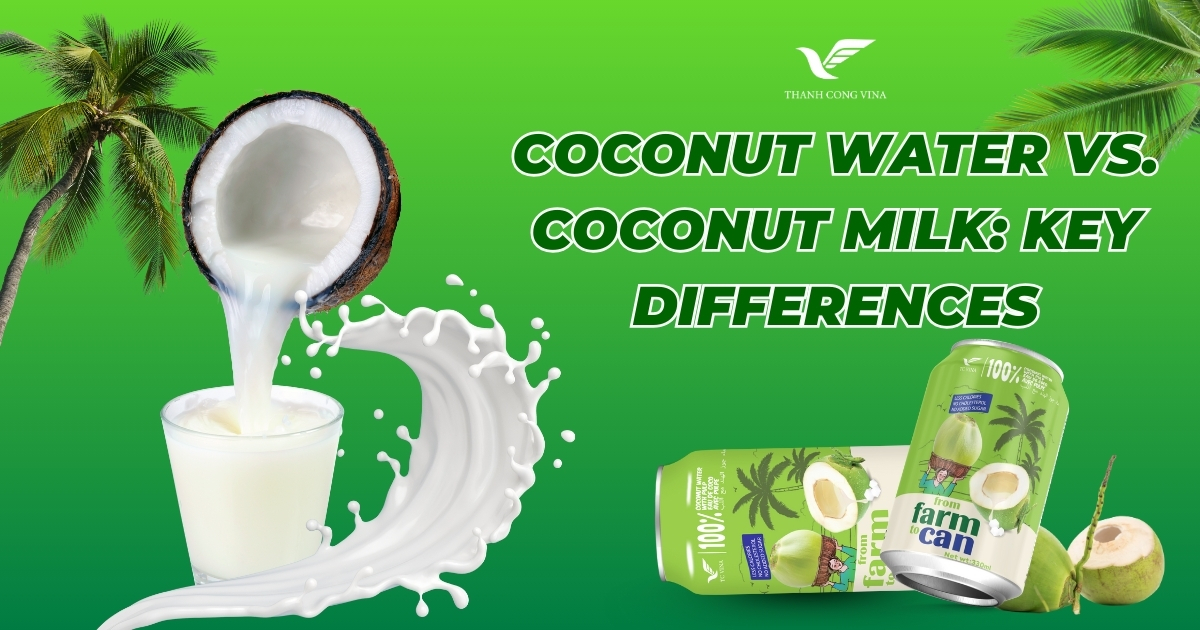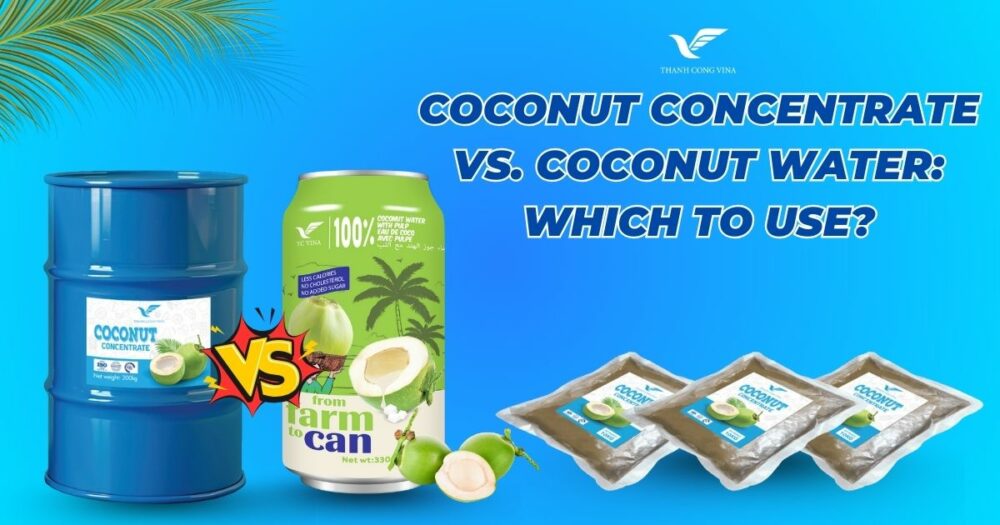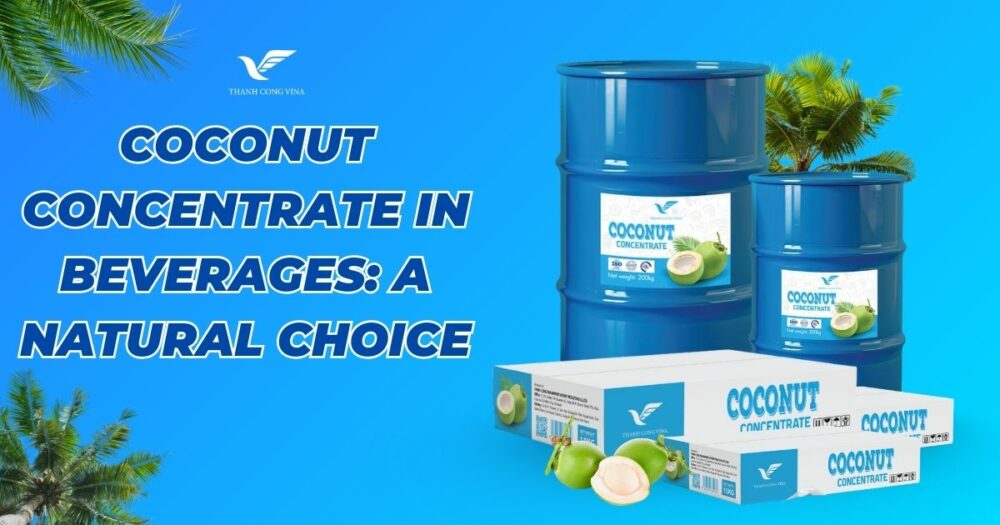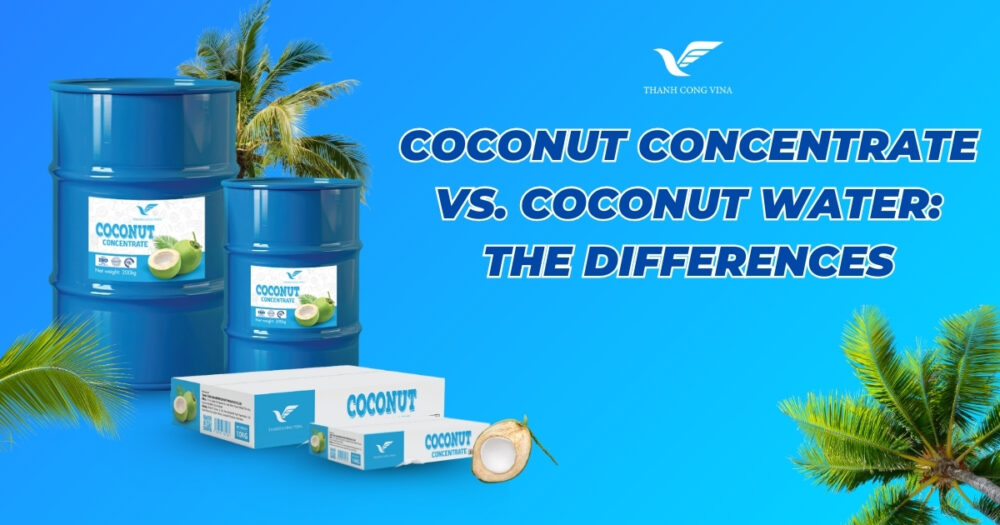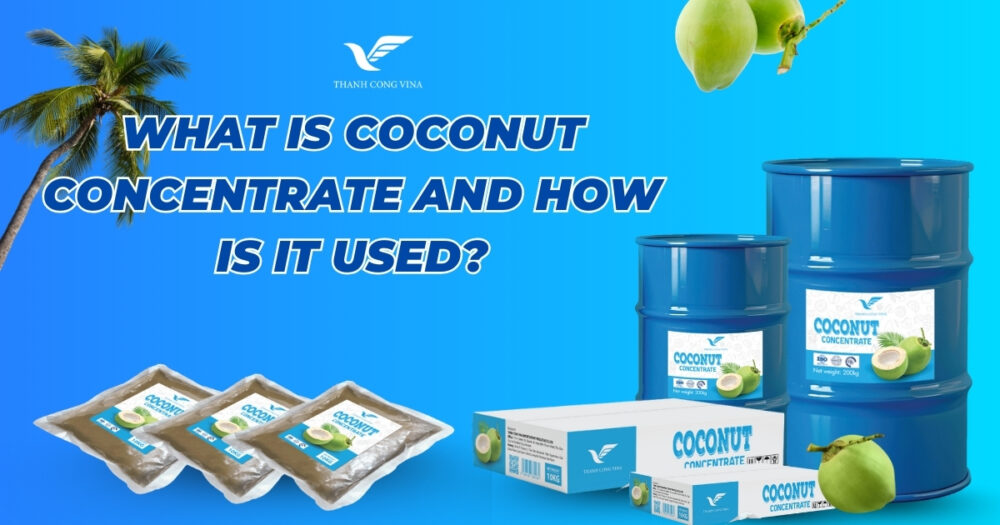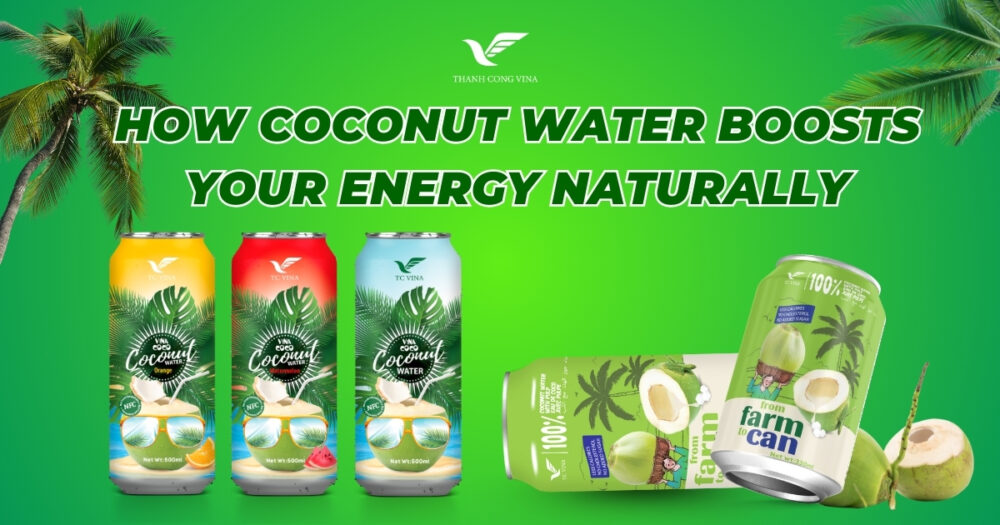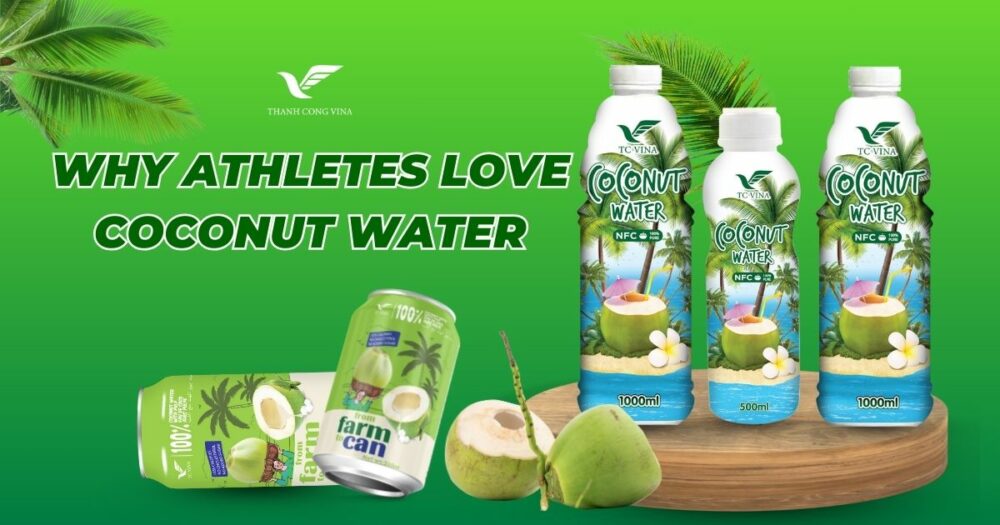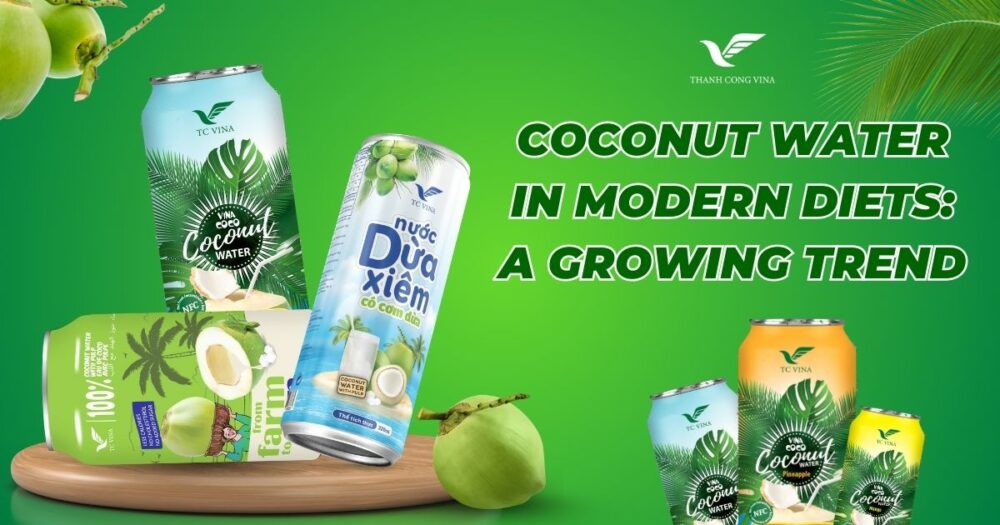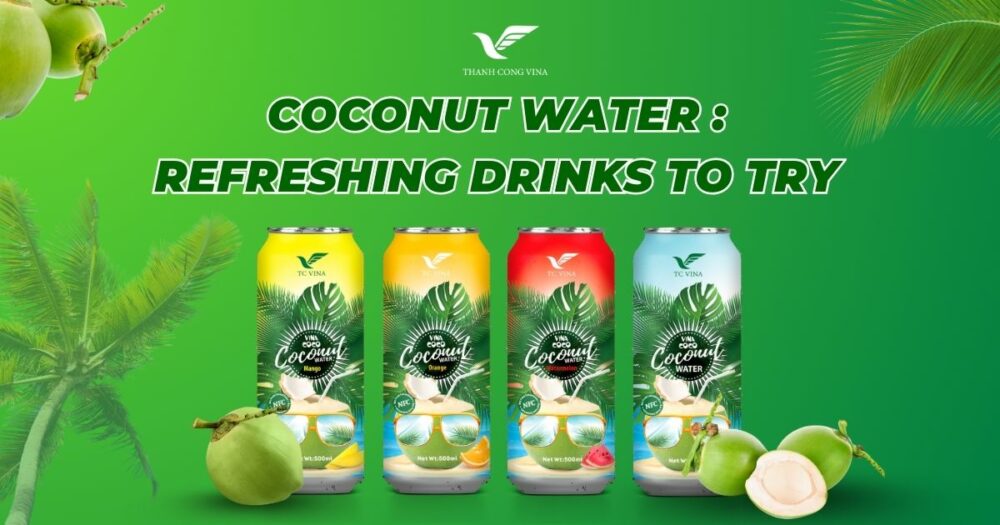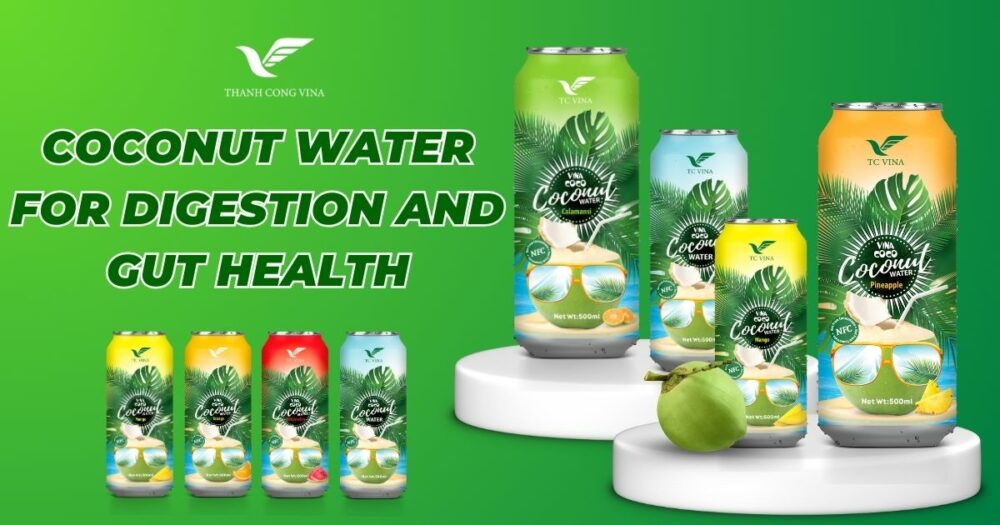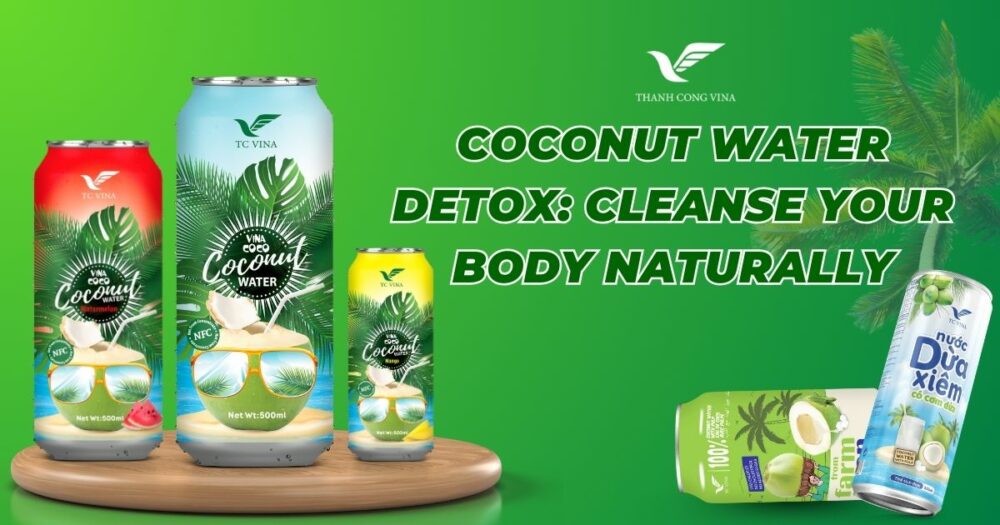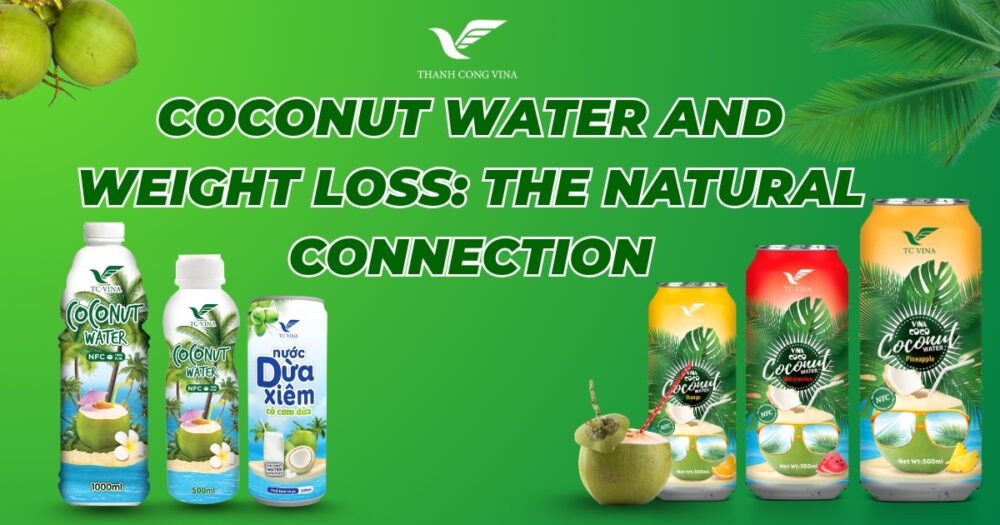Coconuts are among the most versatile fruits in the world, providing hydration, nourishment, and countless culinary uses. Two of the most popular coconut-based beverages are coconut water and coconut milk. Although their names sound similar, these two liquids are very different in taste, texture, nutrition, and purpose. Understanding these differences is essential for consumers, athletes, and anyone interested in natural wellness drinks.
In this comprehensive guide, we will explore the key differences between coconut water and coconut milk, from how they are made to their health benefits, culinary applications, and role in modern diets. At Thanh Cong Vina, you will know exactly when to choose coconut water and when to opt for coconut milk.
What Is Coconut Water?
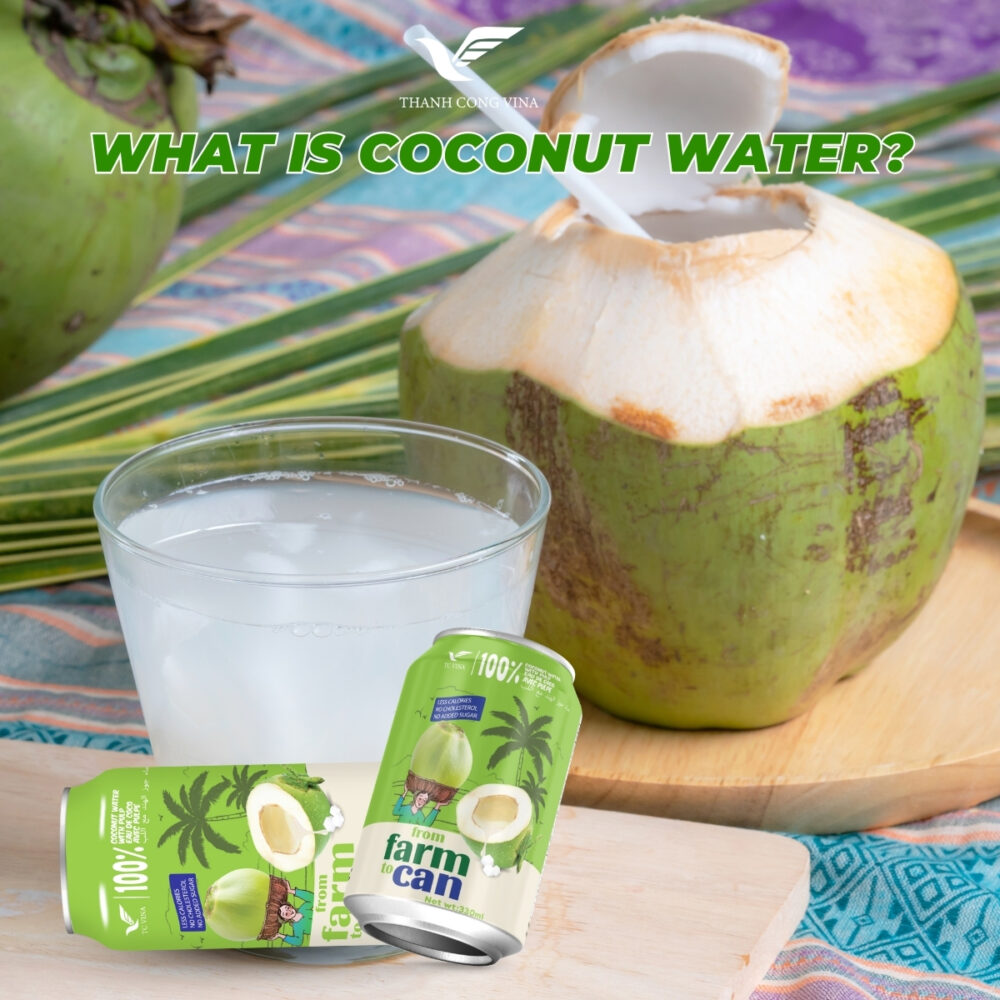
What Is Coconut Water?
Coconut water is the clear liquid naturally found inside young, green coconuts. Often called “nature’s sports drink,” it is packed with electrolytes and low in calories, making it an excellent hydration source.
-
Appearance: Clear to slightly cloudy liquid
-
Taste: Light, refreshing, slightly sweet with a nutty flavor
-
Calories: Approximately 45–60 per cup
-
Main Nutrients: Potassium, sodium, magnesium, calcium, natural sugars
Coconut water is often consumed fresh but is also available in bottled or packaged form for convenience.
What Is Coconut Milk?
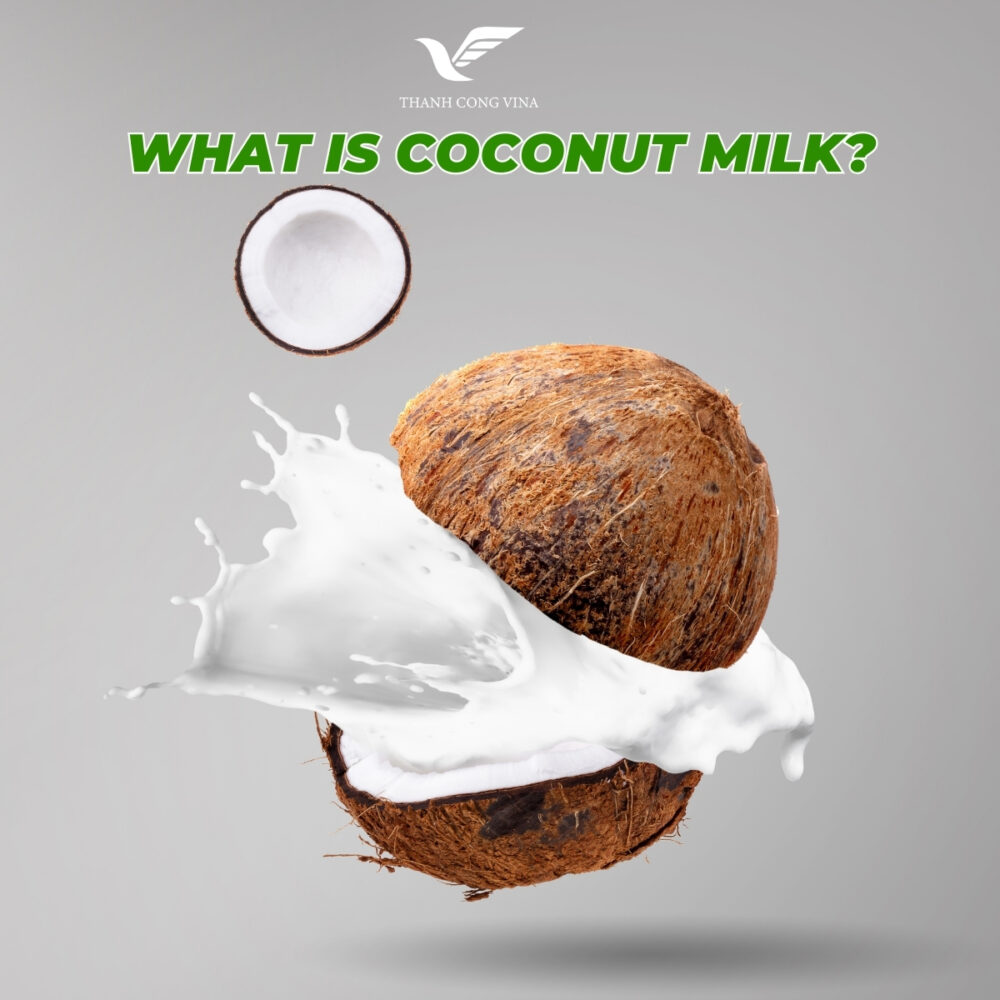
What Is Coconut Milk?
Coconut milk is a rich, creamy liquid made by grating the white flesh of mature coconuts and blending it with water. It is then strained to produce a smooth, milk-like consistency. Unlike coconut water, which occurs naturally inside the coconut, coconut milk is a processed product.
-
Appearance: White, opaque, and thick
-
Taste: Rich, creamy, and slightly sweet with a strong coconut flavor
-
Calories: Approximately 400–450 per cup (for full-fat coconut milk)
-
Main Nutrients: Healthy fats (medium-chain triglycerides), iron, manganese, copper
Coconut milk is widely used in Asian, African, and Caribbean cuisines for curries, soups, desserts, and beverages.
Key Differences Between Coconut Water and Coconut Milk
1. Source and Production
-
Coconut water is naturally present inside young coconuts. No processing is needed except for extraction.
-
Coconut milk is created by grating mature coconut flesh, mixing it with water, and straining it.
2. Texture and Appearance
-
Coconut water is light and watery.
-
Coconut milk is creamy, opaque, and dense.
3. Nutritional Profile
-
Coconut water is low in calories and fat, rich in electrolytes like potassium, sodium, and magnesium.
-
Coconut milk is high in calories and healthy fats, particularly medium-chain triglycerides (MCTs), which support metabolism and satiety.
4. Health Benefits
-
Coconut water: Best for hydration, post-workout recovery, and replenishing electrolytes.
-
Coconut milk: Provides energy, supports heart health, and enhances nutrient absorption.
5. Culinary Uses
-
Coconut water is mostly consumed as a refreshing drink or added to smoothies.
-
Coconut milk is used for cooking, baking, and making dairy-free alternatives such as yogurt and ice cream.
Coconut Water: The Natural Hydration Drink
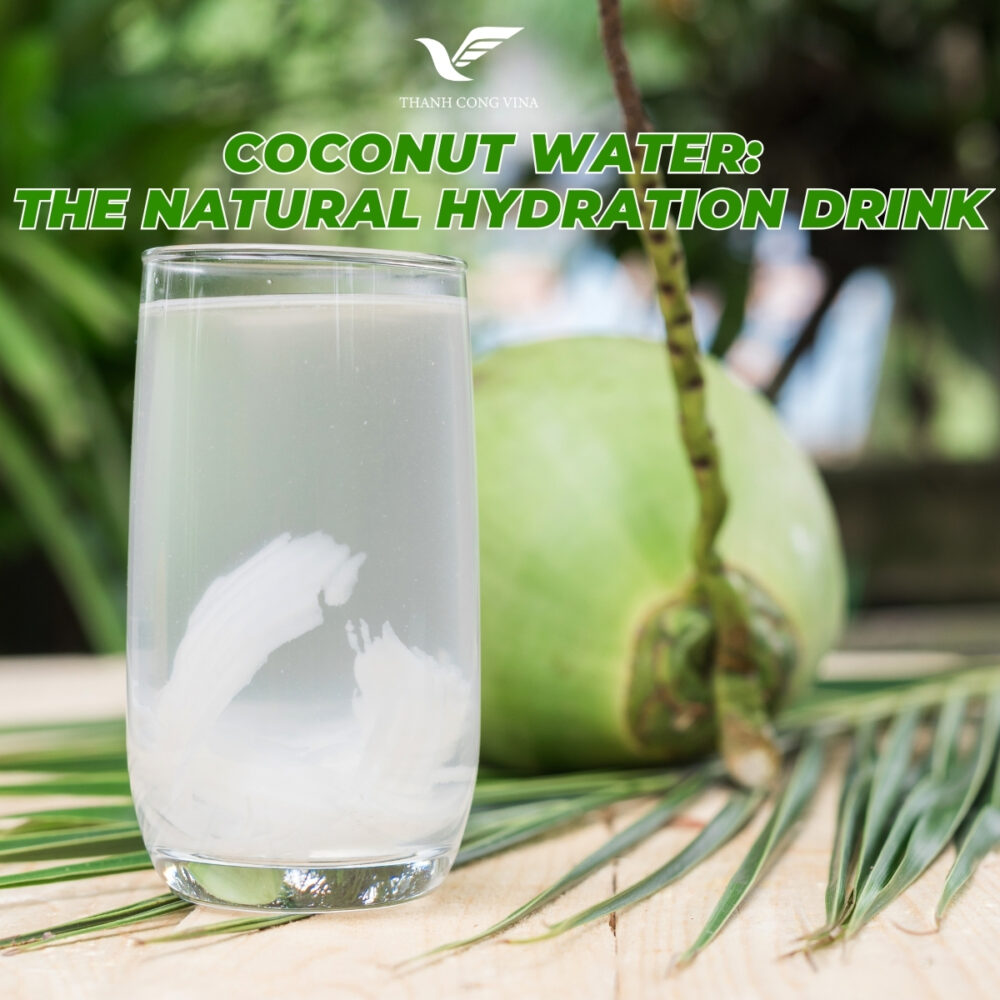
Coconut Water: The Natural Hydration Drink
One of the main reasons coconut water has become popular worldwide is its ability to rehydrate the body naturally. It contains:
-
Potassium: More than a banana per serving, essential for muscle recovery
-
Sodium and magnesium: Important for maintaining fluid balance and nerve function
-
Low sugar: A healthier alternative to soda or processed sports drinks
Athletes and fitness enthusiasts love coconut water because it helps reduce fatigue, prevents cramps, and restores energy after intense workouts.
Coconut Milk: The Creamy Superfood
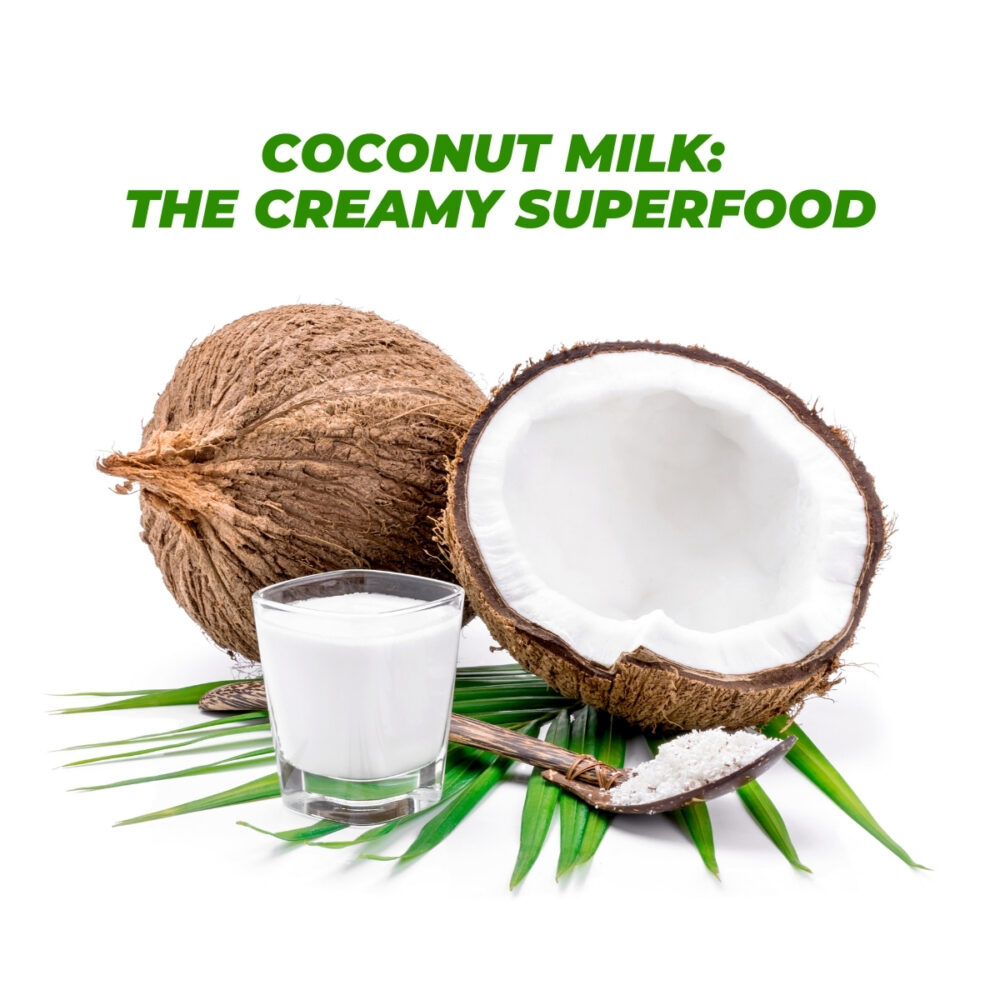
Coconut Milk: The Creamy Superfood
Coconut milk is often seen as a “superfood” because of its healthy fat content. The MCTs in coconut milk are easily absorbed and converted into energy by the liver. Benefits include:
-
Weight management: Supports metabolism and satiety
-
Heart health: Contains lauric acid, which may improve cholesterol levels
-
Dairy alternative: Perfect for lactose-intolerant or vegan diets
It is also versatile in cooking, from Thai curries to dairy-free desserts.
Which One Should You Choose?
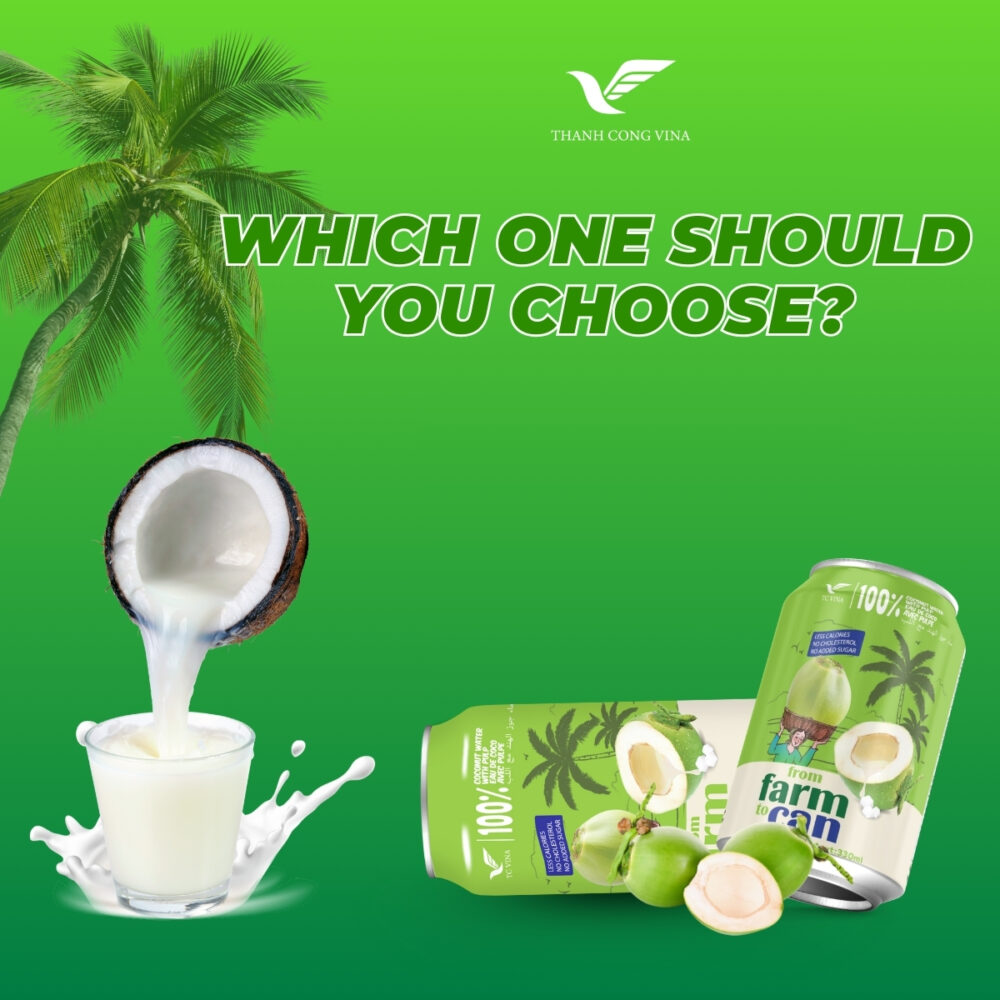
Choose Coconut Water If:
-
You need hydration after exercise
-
You want a low-calorie, refreshing beverage
-
You are looking for a natural alternative to sports drinks
Choose Coconut Milk If:
-
You want a rich, creamy ingredient for cooking
-
You need a dairy-free milk substitute
-
You are looking to add healthy fats to your diet
Conclusion
At TCVina, Although coconut water and coconut milk share the same origin, they are vastly different in nutrition, texture, and uses.
-
Coconut water: Light, hydrating, electrolyte-rich, perfect for athletes and everyday hydration.
-
Coconut milk: Creamy, nutrient-dense, ideal for cooking and plant-based diets.
By understanding the key differences between coconut water and coconut milk, you can make better choices for your health, diet, and lifestyle. Whether you are an athlete seeking hydration or a foodie looking for creamy textures in your recipes, coconuts have something unique to offer.

